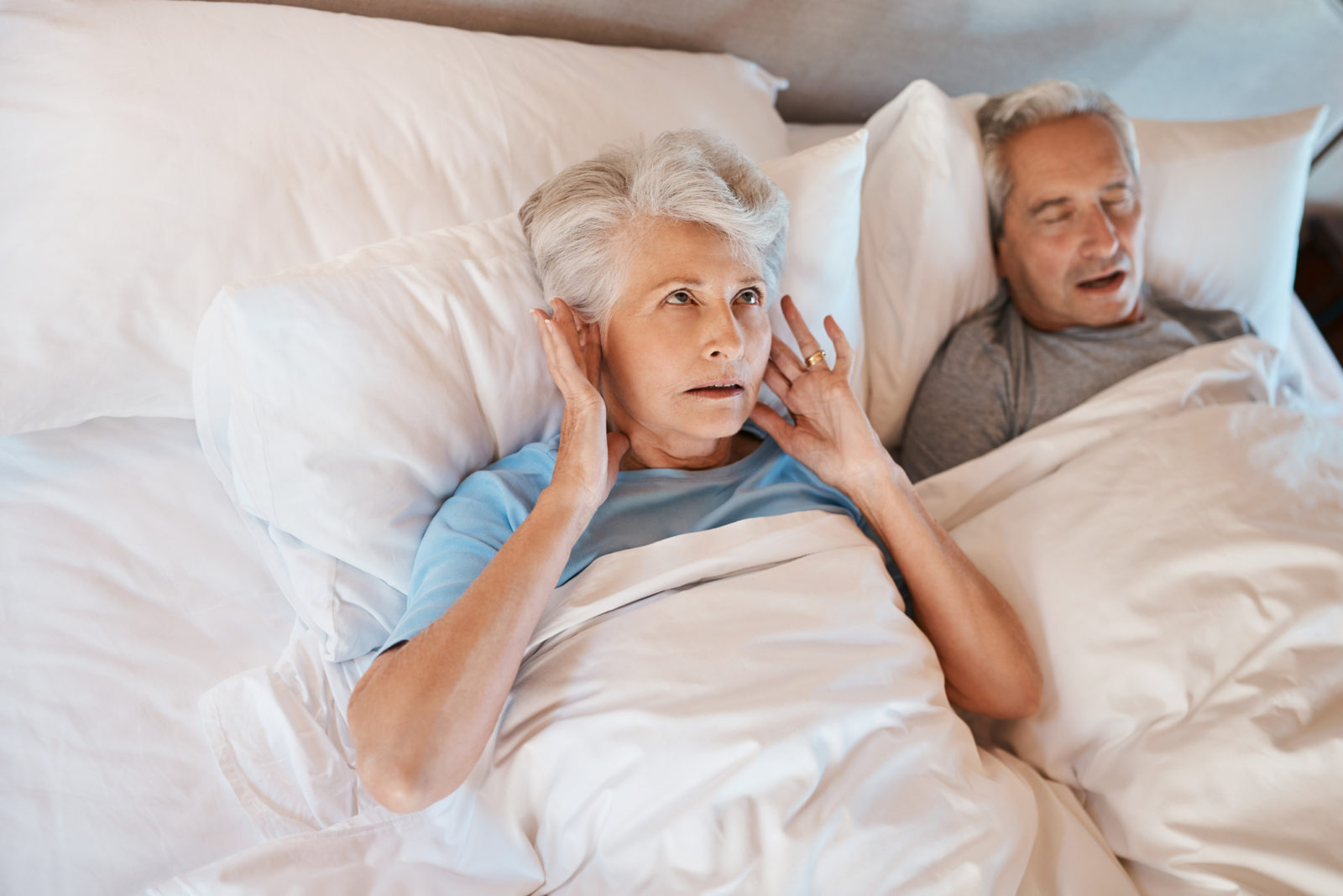Don’t Lose Sleep Over Apnea

Are you getting enough sleep? Fully one-third of U.S. adults report that they usually get less than the recommended amount of sleep, according to the Centers for Disease Control and Prevention (CDC).
While some people’s lifestyles may cause them to sleep less than they should, others may have a sleep disorder, such as sleep apnea. The National Institutes of Health (NIH) describes sleep apnea as pauses in breathing while you’re asleep. The pauses can last from seconds to minutes. You may have difficulty breathing anywhere from a few times to dozens of times in an hour.
Someone who has sleep apnea typically makes sounds when they sleep, a natural reaction when the body is trying to start breathing again. They snore or snort, or even make a choking or gasping sound. Needless to say, these sounds can also be disturbing for your sleeping partner.
Who gets sleep apnea?
Sleep apnea is a common disorder, reports the NIH. It affects people of “both genders, in all races and ethnicities, and in people of all sizes and shapes,” says Dr. Michael Twery, a sleep expert at the NIH.
Twery notes that feeling excessively tired during the daytime is a common symptom of sleep apnea – especially if you’re tired frequently and it affects your lifestyle, mood or memory. You may also be waking yourself up with your own loud sounds, or your sleeping partner may tell you it’s happening. Although Twery cautions that not everyone who snores has sleep apnea, you should consult with your doctor if you’re experiencing some or all of these symptoms.
More good reasons to see your doctor if you suspect sleep apnea: People who have apnea also have an increased risk of dementia, heart disease and obesity. In a recent Duke University study, people with either sleep apnea or disrupted sleep patterns had higher blood glucose levels. Those with the most severe sleep apnea had 14% higher blood glucose levels than those without it.
Getting you back to sleep
If you are diagnosed with sleep apnea, your doctor may prescribe continuous positive airway pressure (CPAP) therapy – a face mask and air pump – or a special mouthpiece for use while sleeping. Your doctor may also suggest weight loss if you are overweight. According to the Harvard Health Blog, “People who are overweight are more likely to have extra tissue in the back of their throat, which can fall down over the airway and block the flow of air into the lungs while they sleep.”
Your natural inclination when reading anything about health and wellness may be to sleep on it – but don’t sacrifice too many more nights of good sleep!
![Charlesgate [logo]](https://www.charlesgate.net/wp-content/uploads/sites/218/2016/12/logo-new.png)